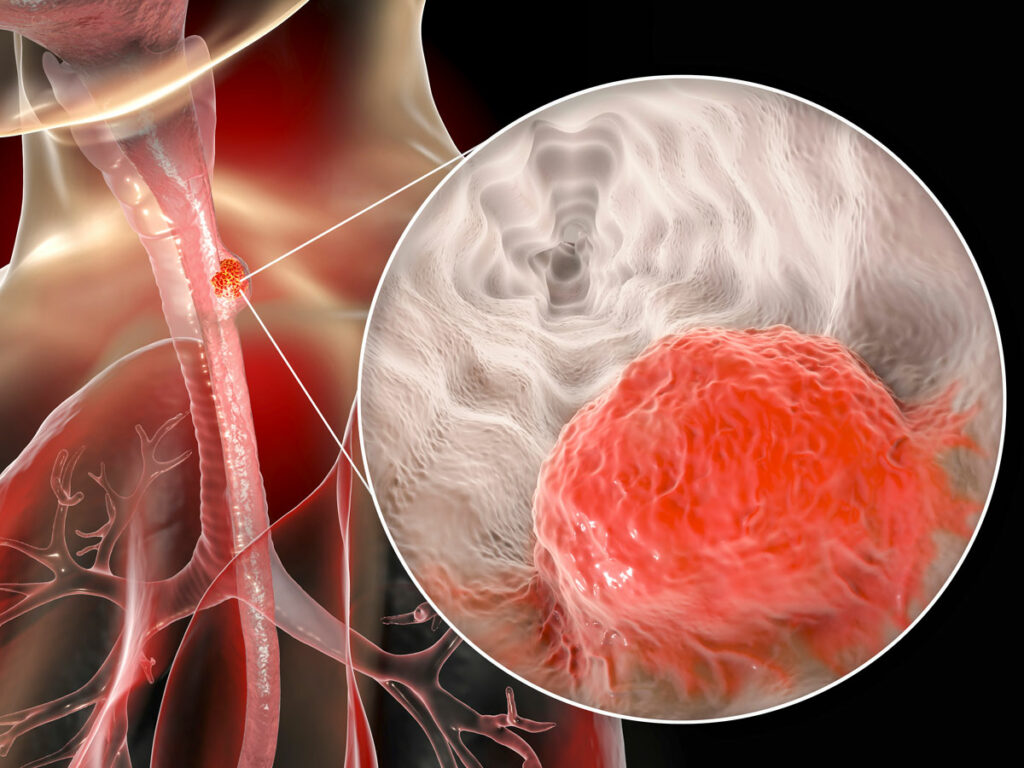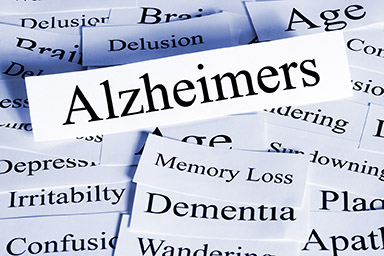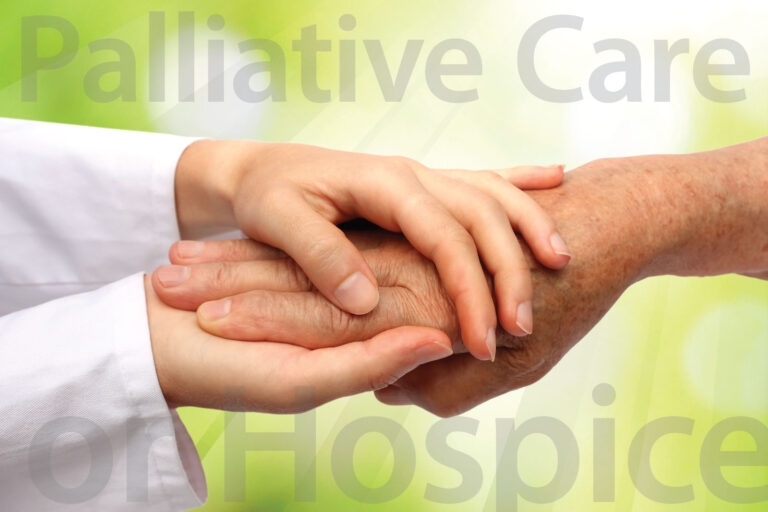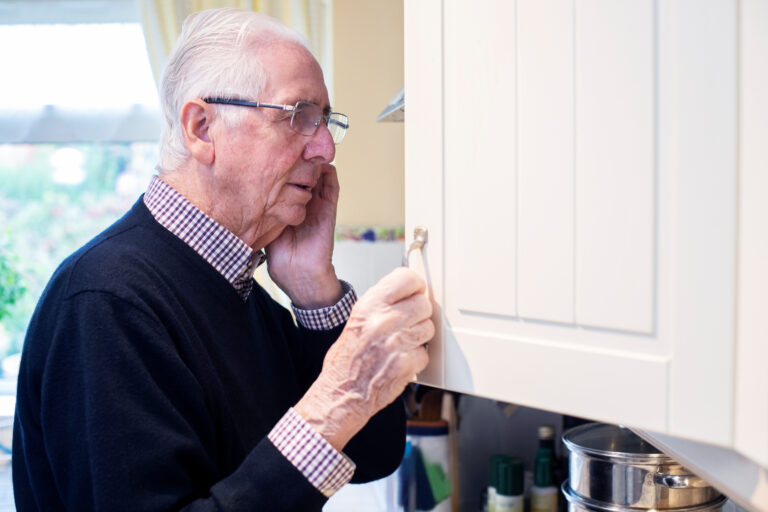An esophageal cancer diagnosis can be extremely distressing. The disease can wreak havoc on your body, causing pain and difficulty swallowing, which can make getting proper nutrition a challenge. Then there’s the emotional toll of living with a chronic illness that may become terminal.
If you or a loved one has esophageal cancer, you may be overwhelmed with the physical challenges of the disease. At the same time, you face a flood of choices regarding treatment and symptom management.
You might also wonder what esophageal cancer looks like when it reaches advanced stages. Here’s a closer look at what esophageal cancer does to the body, the signs of dying from esophageal cancer, and an overview of treatment options to help relieve pain and other symptoms.
Are you or a loved one living with a chronic or terminal illness?
The Sage Family of Companies is here to help.
Are you or a loved one living with achronic or terminal illness?
The Sage Family of Companies is here to help.
What Is Esophageal Cancer?
Esophageal cancer is a form of cancer that begins in the esophagus, the long, muscular tube that connects your throat to your stomach. The esophagus helps move the food you eat to your stomach for digestion. Cancerous tumors in the esophagus arise in the organ’s inner lining called the mucosa.
Esophageal cancer is quite common, making up around one percent of all cancers in the United States. It’s the eighth most commonly diagnosed cancer in the world and the sixth leading cause of cancer death. Doctors still don’t know exactly what causes esophageal cancer. However, people with a history of smoking tobacco, heavy alcohol use, obesity, Barrett’s esophagus, and chronic acid reflux are at a higher risk.

Signs of Dying From Esophageal Cancer
The early stages of esophageal cancer often don’t have any symptoms. This means the disease usually isn’t caught until later stages when the cancer has spread to other areas of the body.
When this occurs, esophageal cancer becomes much more difficult to treat. While each person’s experience may be different, there are some common telltale end-stage esophageal cancer symptoms.
Signs of dying from esophageal cancer can include:
- Severe chest pain
- Dysphasia, or difficulty swallowing
- Weight loss
- Nausea
- Vomiting
- Chronic cough
- Difficulty breathing, breathlessness
- Increasing hoarseness and/or sore throat
- Frequent hiccups
- Trouble speaking, hoarseness
- Extreme fatigue
- Bleeding into the esophagus, which can result in blood in stool
Treatments to Relieve Pain and Symptoms of Stage 4 Esophageal Cancer
Most cases of end-stage esophageal cancer are terminal. But there are a number of treatment options to prevent and relieve pain and other symptoms and help you live as long as possible.
Feeding Tube
Esophageal cancer can make it difficult to swallow, so it’s common to experience weight loss if you have this type of cancer. Treatments like chemotherapy and radiation can also cause side effects like painful sores in the mouth and throat, making it even more difficult to eat and get proper nutrition.
In this case, your doctor may recommend a feeding tube, also called a jejunostomy tube or J-tube. This involves a minor procedure that creates a small hole in the skin over your abdomen in which the J-tube is placed to allow liquid nutrition to pass directly into your small intestine.
Esophageal Dilation
Another option is to facilitate better swallowing with esophageal dilation. During this procedure, your doctor will insert a small balloon-like device that’s shaped like a pipe down your throat to gently stretch out the portions of your esophagus that have narrowed due to the cancer.
The dilation usually only lasts for a few weeks, so your doctor may recommend placing an expandable stent in the esophagus to keep it open.
Laser Ablation
Some doctors may recommend laser ablation to alleviate pain and the other symptoms of esophageal cancer. With this treatment, a surgeon uses a laser beam to destroy the cancerous tissue narrowing the esophagus. This can make it easier to swallow food.
Radiation Therapy
External-beam radiation can target the cancer in the esophagus that’s causing your swallowing problems.
Chemotherapy
Doctors often use chemotherapy, a type of powerful cancer drug, to treat the symptoms of end-stage esophageal cancer. These drugs can help slow the growth of cancer to prevent further complications. Chemotherapy can produce a number of unpleasant side effects, including nausea, vomiting, fatigue, hair loss, anemia, and an increased risk of infection. Your doctor will discuss the pros and cons of this treatment for your individual case.
Pain Medications
To help alleviate the pain caused by stage 4 esophageal cancer, your doctor will likely prescribe pain medications. These can include opioids and non-opioid options, which can be taken orally in pill form or intravenously. Your doctor will discuss which type of pain treatment is right for you.
Are you or a loved one living with a chronic or terminal illness?
The Sage Family of Companies is here to help.
Are you or a loved one living with achronic or terminal illness?
The Sage Family of Companies is here to help.
How Long Can You Live With Stage 4 Esophageal Cancer?
Stage 4 esophageal cancer is usually terminal. How long you can live with the disease varies from person to person. According to the American Cancer Society, the 5-year survival rate for distant, or stage 4, esophageal cancer is 6 percent. This means that 6 percent of people with esophageal cancer that has spread will be alive five years after diagnosis.
This is certainly a difficult number to read if you or your loved one are currently living with esophageal cancer. It’s important to keep in mind that this is an estimate based on data from a large number of people with the disease, and there’s no way to predict your individual outcome.
Your doctor will discuss your particular case with you, as well as treatment options and best chances for survival. Remember, even if your cancer isn’t curable, there are ways to manage your symptoms, keep you comfortable, and help you live as long as you’re able.
Esophageal Cancer: Frequently Asked Questions
Here are answers to some frequently asked questions about the symptoms of dying from esophageal cancer.
What Causes Death With Esophageal Cancer?
Because esophageal cancer is difficult to detect in earlier stages, most people aren’t diagnosed until the cancer has spread to other parts of the body through the bloodstream or lymphatic system. When the cancer becomes too invasive and is no longer treatable, organs such as the liver and kidneys can shut down, which leads to death.
Esophageal cancer also increases the risk of death from ischemic heart disease, cerebrovascular disease, respiratory diseases, and other cancers.
How Fast Do the Symptoms of Esophageal Cancer Progress?
Esophageal cancer usually progresses quickly, but since the esophagus is flexible, it can expand around the tumor as it gets bigger. The disease also doesn’t cause symptoms in its early stages, so many people are unaware they have esophageal cancer until much later. Once the disease spreads and symptoms appear, the cancer often progresses rapidly.
Palliative and Hospice Care for Stage 4 Esophageal Cancer
If you or a loved one has esophageal cancer, palliative care can help. This is a specialized form of care for people living with chronic illnesses that focuses on providing relief from pain and other symptoms, as well as improving quality of life.
Palliative Care
When receiving palliative care, you’ll continue medical treatments meant to stop or cure your cancer. But in addition to these treatments, you’ll receive care focused on comfort, as well as your mental, emotional, and, if desired, spiritual health. Anyone with a chronic illness can enroll in palliative care at any stage of disease. This type of care is often recommended shortly after diagnosis.
Hospice Care
If medical treatment no longer works or if the complications from stage 4 esophageal cancer become too difficult to manage, you may want to consider hospice care. This type of care focuses on providing comfort, managing symptoms, and improving your quality of life as death approaches.
During hospice care, doctors transition your care from curative treatment to comfort care. This can be an extremely emotional time for you and your loved ones, and your care team will provide resources and support for your whole family as they help you prepare to transition from life. You can receive hospice care at home or at a hospice facility.
How to Provide Support for a Loved One With Esophageal Cancer
If your loved one has end-stage esophageal cancer, it can be difficult to know how to help, but there are plenty of ways to offer support. You can help with caregiving responsibilities like medication management and assisting with daily tasks like grooming and dressing.
Take note of any new symptoms and report them to your loved one’s doctor. Ask your loved one’s care team about any new treatments and potential side effects so you can be involved in the care plan. Being your loved one’s voice can be especially helpful when they’re too weak or tired to communicate.
Importantly, let your loved one know you’re there for them if they ever want to talk. Simply having space for their emotions and grief around their illness can make a big difference in their ability to cope with a terminal disease. Don’t forget to take care of yourself, as well, and seek help if you’re feeling overwhelmed or burnt out from your caregiving responsibilities.
Summary
A cancer diagnosis is one of the toughest events a family can face. While stage 4 esophageal cancer is usually terminal, there are options, such as palliative and hospice care, that can help ease pain and provide comfort no matter where you are in your treatment plan.
The Sage Family of Companies is here to answer any questions you may have.
Article Resources
- Esophageal Cancer – National Cancer Institute [n.d.].
- Epidemiology of esophageal cancer in 2020 and projections to 2030 and 2040 – National Library of Medicine [2023].
- Survival Rates for Esophageal Cancer – American Cancer Society [2023].
- Cause of death in patients diagnosed with esophageal cancer in Sweden: a population-based study – National Library of Medicine [2017].






